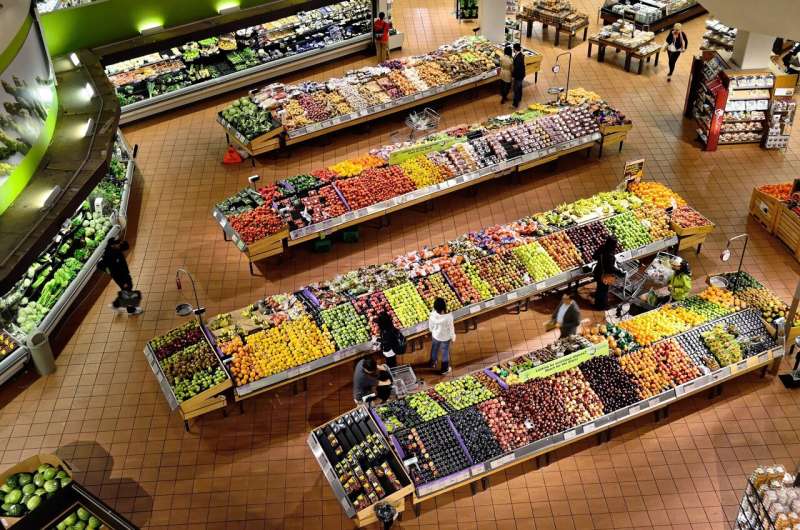This article has been reviewed according to Science X's editorial process and policies. Editors have highlighted the following attributes while ensuring the content's credibility:
fact-checked
trusted source
proofread
Melatonin doesn't just help you sleep—it can help keep fruit and vegetables fresh

Edith Cowan University (ECU) horticultural scientists have been compiling research over the past year from all over the world to assess the benefits of melatonin application onto fruit and vegetables, to help keep these highly perishable foods fresher—for longer.
Lead researcher Professor Zora Singh said up to 44% of fresh horticultural produce is lost from farm to consumption, and 'chilling injury' plays a key role in the postharvest losses.
"You will often see abnormal ripening, sunken spots, pitting, hardening of flesh and browning of peel and pulp in cold-stored fruits, while browning of tissues, translucency and water-soaked lesions in the vegetables, that is what we call chilling injury," Professor Singh explained.
"The average storage temperature for subtropical fruits and vegetables usually range from 4–8°C while 10–20°C is optimum temperature to avoid chilling injury in tropical horticultural produce."
Professor Singh and his team claim most of the evidence points to melatonin as one of the best ways to prevent or reduce the effects of chilling injury to cold-stored fruit and vegetables.
"Melatonin is a natural sleeping hormone in living organisms, and it is also helpful in reducing chilling injury symptoms and membrane leakage by maintaining higher levels of antioxidants and freshness of horticultural produce," researcher and Ph.D. student Shoaib Shah explained.
"Melatonin is a safe alternative to hazardous chemical treatments, without any adverse effects on the consumer health."
Global food security—the challenge
Across the globe food security is an escalating problem, with food losses rising annually.
- 13.2% of food, valued at $400 billion, is lost annually between harvest and the retail market (FAO 2019)
- 17% of food production is wasted in households, food services and in retail (UNEP 2020)
- Food loss and waste account for approximately 8-10% of global greenhouse gas (GHG) emissions (UNEP 2021)
Fresh produce, such a fruit production is declining, the result of shrinking agricultural land, reduced availability of water supplies, climate change and soil degradation.
Chilling injury is another significant factor contributing to that decline, resulting in 44% of fruit and vegetables not being fit for human consumption globally.
Tropical and sub-tropical fruits are most at risk, as they are highly perishable.
While fruits such as apples can stored for up to nine months, berries can only be kept refrigerated for seven to 12 days.
"When it comes to grains and other produce for harvest, they are more resilient than fresh horticultural produce," Professor Singh said.
"Fruit and vegetables are not only challenging to grow, preserving them is immensely difficult and this is a crisis affecting nations all over the world, so we need to find the solution to keep producing food from the earth in a sustainable way."
Professor Zora Singh is a Foundation Professor of Horticultural Science in ECU's School of Science with global research expertise in production technology and postharvest physiology of horticultural crops.
Presently, Professor Singh and his research team, including Ph.D. students, are working to minimize the global food and nutritional security challenges by improving production technology and reducing postharvest losses in fresh horticultural produce—from farm to fork.
The study is published in the journal Food Reviews International.
More information: Hafiz Muhammad Shoaib Shah et al, Insight into the Role of Melatonin in Mitigating Chilling Injury and Maintaining the Quality of Cold-Stored Fruits and Vegetables, Food Reviews International (2023). DOI: 10.1080/87559129.2023.2212042
Provided by Edith Cowan University




















